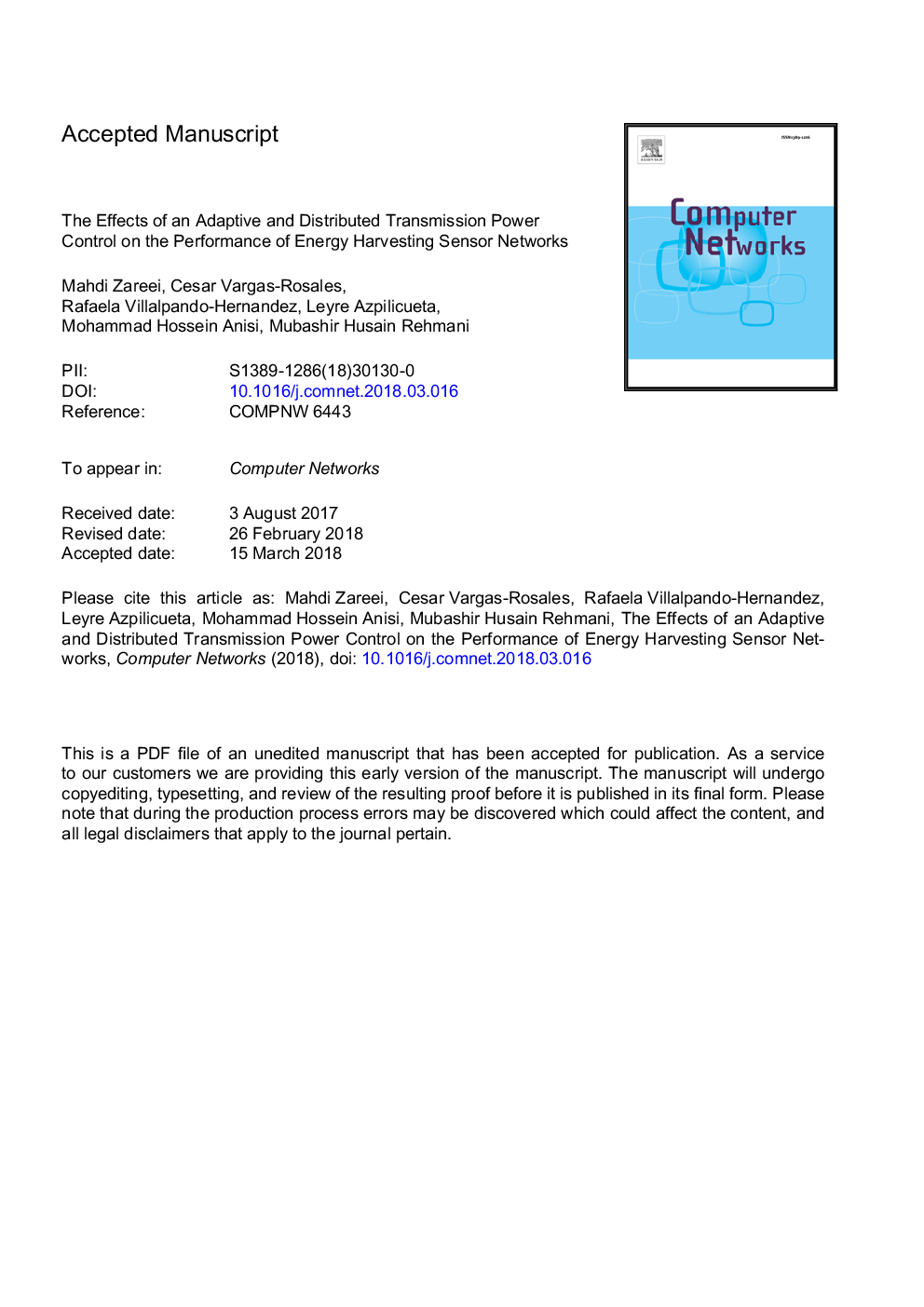ترجمه فارسی عنوان مقاله
اثرات یک کنترل قدرت انتقال و توزیع شده بر عملکرد شبکه های حسگر برداشت انرژی
عنوان انگلیسی
The effects of an Adaptive and Distributed Transmission Power Control on the performance of energy harvesting sensor networks
| کد مقاله | سال انتشار | تعداد صفحات مقاله انگلیسی |
|---|---|---|
| 147183 | 2018 | 26 صفحه PDF |
منبع

Publisher : Elsevier - Science Direct (الزویر - ساینس دایرکت)
Journal : Computer Networks, Volume 137, 4 June 2018, Pages 69-82
ترجمه کلمات کلیدی
برداشت انرژی، شبکه حسگر بی سیم، کنترل قدرت انتقال، بهره وری انرژی، محاسبات سبز،
کلمات کلیدی انگلیسی
Energy harvesting; Wireless sensor network; Transmission power control; Energy efficiency; Green computing;

